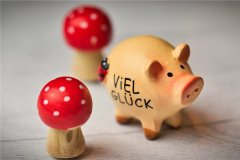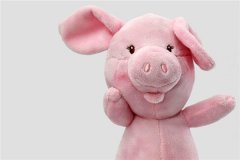1. Sun Tzu said: In the operations of war,where there are in the field a thousand swift chariots,as many heavy chariots, and a hundred thousand mail-clad soldiers, with provisions enough to carry them a thousand li, the expenditure1 at home and at the front,including entertainment of guests, small items such as glue and paint, and sums spent on chariots and armor,will reach the total of a thousand ounces of silver per day.Such is the cost of raising an army of 100,000 men.
2. When you engage in actual fighting, if victory is long in coming, then men's weapons will grow dull and their ardor2 will be damped. If you lay siege to a town,you will exhaust your strength.
3. Again, if the campaign is protracted3, the resources of the State will not be equal to the strain.
4. Now, when your weapons are dulled, your ardor damped,your strength exhausted4 and your treasure spent,other chieftains will spring up to take advantage of your extremity5. Then no man, however wise,will be able to avert6 the consequences that must ensue.
5. Thus, though we have heard of stupid haste in war,cleverness has never been seen associated with long delays.
6. There is no instance of a country having benefited from prolonged warfare7.
7. It is only one who is thoroughly8 acquainted with the evils of war that can thoroughly understand the profitable way of carrying it on.
8. The skillful soldier does not raise a second levy,neither are his supply-wagons loaded more than twice.
9. Bring war material with you from home, but forage9 on the enemy. Thus the army will have food enough for its needs.
10. Poverty of the State exchequer10 causes an army to be maintained by contributions from a distance. Contributing to maintain an army at a distance causes the people to be impoverished11.
11. On the other hand, the proximity12 of an army causes prices to go up; and high prices cause the people's substance to be drained away.
12. When their substance is drained away, the peasantry will be afflicted13 by heavy exactions.
13,14. With this loss of substance and exhaustion14 of strength, the homes of the people will be stripped bare,and three-tenths of their income will be dissipated;while government expenses for broken chariots, worn-out horses,breast-plates and helmets, bows and arrows, spears and shields,
protective mantles15, draught-oxen and heavy wagons,will amount to four-tenths of its total revenue.
15. Hence a wise general makes a point of foraging16 on the enemy. One cartload of the enemy's provisions is equivalent to twenty of one's own, and likewise a single picul of his provender17 is equivalent to twenty from one's own store.
16. Now in order to kill the enemy, our men must be roused to anger; that there may be advantage from defeating the enemy, they must have their rewards.
17. Therefore in chariot fighting, when ten or more chariots have been taken, those should be rewarded who took the first. Our own flags should be substituted for those of the enemy,and the chariots mingled18 and used in conjunction with ours.The captured soldiers should be kindly19 treated and kept.
18. This is called, using the conquered foe20 to augment21 one's own strength.
19. In war, then, let your great object be victory,not lengthy22 campaigns.
20. Thus it may be known that the leader of armies is the arbiter23 of the people's fate, the man on whom it depends whether the nation shall be in peace or in peril24.
原文: 【作战第二】
1.孙子曰: 凡用兵之法,驰车千驷,革车千乘,带甲十万,千里馈粮,则内外之费,宾客之用,胶漆之材,车甲之奉,日费千金,然后十万之师举矣。
2.其用战也胜,久则钝兵挫锐,攻城则力屈,久暴师则国用不足。夫钝兵挫锐,屈力殚货,则诸侯乘其弊而起,虽有智者不能善其后矣。故兵闻拙速,未睹巧之久也。夫兵久而国利者,未之有也。故不尽知用兵之害者,则不能尽知用兵之利也。
3.
善用兵者,役不再籍,粮不三载,取用于国,因粮于敌,故军食可足也。国之贫于师者远输,远输则百姓贫;近师者贵卖,贵卖则百姓财竭,财竭则急于丘役。力屈财殚,中原内虚于家,百姓之费,十去其七;公家之费,破军罢马,甲胄矢弓,戟盾矛橹,丘牛大车,十去其六。
4. 故智将务食于敌,食敌一钟,当吾二十钟;忌杆一石,当吾二十石。
5.故杀敌者,怒也;取敌之利者,货也。车战得车十乘以上,赏其先得者,而更其旌旗。车杂而乘之,卒善而养之,是谓胜敌而益强。
6.故兵贵胜,不贵久。 故知兵之将,民之司命。国家安危之主也。
译文: 【作战第二】
1.孙子说:要兴兵作战,需做的物资准备有,轻车千辆,重车千辆,全副武装的士兵十万,并向千里之外运送粮食。那么前后方的军内外开支,招待使节、策士的用度,用于武器维修的胶漆等材料费用,保养战车、甲胄的支出等,每天要消耗千金。按照这样的标准准备之后,十万大军才可出发上战场。
2.因此,军队作战就要求速胜,如果拖的很久则军队必然疲惫,挫失锐气。一旦攻城,则兵力将耗尽,长期在外作战还必然导致国家财用不足。如果军队因久战疲惫不堪,锐气受挫,军事实力耗尽,国内物资枯竭,其他诸侯必定趁火打劫。这样,即使足智多谋之士也无良策来挽救危亡了。所以,在实际作战中,只听说将领缺少高招难以速胜,却没有见过指挥高明巧于持久作战的。战争旷日持久而有利于国家的事,从来没有过。所以,不能详尽地了解用兵的害处,就不能全面地了解用兵的益处。
3.善于用兵的人,不用再次征集兵员,不用多次运送军粮。武器装备由国内供应,从敌人那里设法夺取粮食,这样军队的粮草就可以充足了。国家之所以因作战而贫困,是由于军队远征,不得不进行长途运输。长途运输必然导致百姓贫穷。驻军附近处物价必然飞涨,物价飞涨,必然导致物资枯竭,物财枯竭,赋税和劳役必然加重。在战场上,军力耗尽,在国内财源枯竭,百姓私家财产损耗十分之七。公家的财产,由于车辆破损,马匹疲惫,盔甲、弓箭、矛戟、盾牌、牛车的损失,而耗去十分之六。
4.所以明智的将军,一定要在敌国解决粮草,从敌国搞到一钟的粮食,就相当于从本国启运时的二十钟,在当地取得饲料一石,相当于从本国启运时的二十石。
5.所以,要使士兵拼死杀敌,就必须怒之,激励之。要使士兵勇于夺取敌方的军需物资,就必须以缴获的财物作奖赏。所以,在车战中,抢夺十辆车以上的,就奖赏最先抢得战车的。而夺得的战车,要立即换上我方的旗帜,把抢得的战车编入我方车队。要善待俘虏,使他们有归顺之心。这就是战胜敌人而使自己越发强大的方法。
6.所以,作战最重要、最有利的是速胜,最不宜的是旷日持久。真正懂得用兵之道、深知用兵利害的将帅,掌握着民众的的生死,主宰着国家的安危。
1 expenditure
n.(时间、劳力、金钱等)支出;使用,消耗
参考例句:
The entry of all expenditure is necessary.有必要把一切开支入账。
The monthly expenditure of our family is four hundred dollars altogether.我们一家的开销每月共计四百元。
2 ardor
n.热情,狂热
参考例句:
His political ardor led him into many arguments.他的政治狂热使他多次卷入争论中。
He took up his pursuit with ardor.他满腔热忱地从事工作。
3 protracted
adj.拖延的;延长的v.拖延“protract”的过去式和过去分词
参考例句:
The war was protracted for four years. 战争拖延了四年。 来自《简明英汉词典》
We won victory through protracted struggle. 经过长期的斗争,我们取得了胜利。 来自《简明英汉词典》
4 exhausted
adj.极其疲惫的,精疲力尽的
参考例句:
It was a long haul home and we arrived exhausted.搬运回家的这段路程特别长,到家时我们已筋疲力尽。
Jenny was exhausted by the hustle of city life.珍妮被城市生活的忙乱弄得筋疲力尽。
5 extremity
n.末端,尽头;尽力;终极;极度
参考例句:
I hope you will help them in their extremity.我希望你能帮助在穷途末路的他们。
What shall we do in this extremity?在这种极其困难的情况下我们该怎么办呢?
6 avert
v.防止,避免;转移(目光、注意力等)
参考例句:
He managed to avert suspicion.他设法避嫌。
I would do what I could to avert it.我会尽力去避免发生这种情况。
7 warfare
n.战争(状态);斗争;冲突
参考例句:
He addressed the audience on the subject of atomic warfare.他向听众演讲有关原子战争的问题。
Their struggle consists mainly in peasant guerrilla warfare.他们的斗争主要是农民游击战。
8 thoroughly
adv.完全地,彻底地,十足地
参考例句:
The soil must be thoroughly turned over before planting.一定要先把土地深翻一遍再下种。
The soldiers have been thoroughly instructed in the care of their weapons.士兵们都系统地接受过保护武器的训练。
9 forage
n.(牛马的)饲料,粮草;v.搜寻,翻寻
参考例句:
They were forced to forage for clothing and fuel.他们不得不去寻找衣服和燃料。
Now the nutritive value of the forage is reduced.此时牧草的营养价值也下降了。
10 exchequer
n.财政部;国库
参考例句:
In Britain the Chancellor of the Exchequer deals with taxes and government spending.英国的财政大臣负责税务和政府的开支。
This resulted in a considerable loss to the exchequer.这使国库遭受了重大损失。
11 impoverished
adj.穷困的,无力的,用尽了的v.使(某人)贫穷( impoverish的过去式和过去分词 );使(某物)贫瘠或恶化
参考例句:
the impoverished areas of the city 这个城市的贫民区
They were impoverished by a prolonged spell of unemployment. 他们因长期失业而一贫如洗。 来自《简明英汉词典》
12 proximity
n.接近,邻近
参考例句:
Marriages in proximity of blood are forbidden by the law.法律规定禁止近亲结婚。
Their house is in close proximity to ours.他们的房子很接近我们的。
13 afflicted
使受痛苦,折磨( afflict的过去式和过去分词 )
参考例句:
About 40% of the country's population is afflicted with the disease. 全国40%左右的人口患有这种疾病。
A terrible restlessness that was like to hunger afflicted Martin Eden. 一阵可怕的、跟饥饿差不多的不安情绪折磨着马丁·伊登。
14 exhaustion
n.耗尽枯竭,疲惫,筋疲力尽,竭尽,详尽无遗的论述
参考例句:
She slept the sleep of exhaustion.她因疲劳而酣睡。
His exhaustion was obvious when he fell asleep standing.他站着睡着了,显然是太累了。
15 mantles
vt.&vi.覆盖(mantle的第三人称单数形式)
参考例句:
The ivy mantles the building. 长春藤覆盖了建筑物。 来自互联网
16 foraging
v.搜寻(食物),尤指动物觅(食)( forage的现在分词 );(尤指用手)搜寻(东西)
参考例句:
They eke out a precarious existence foraging in rubbish dumps. 他们靠在垃圾场捡垃圾维持着朝不保夕的生活。 来自《简明英汉词典》
The campers went foraging for wood to make a fire. 露营者去搜寻柴木点火。 来自辞典例句
17 provender
n.刍草;秣料
参考例句:
It is a proud horse that will bear his own provender.再高傲的马也得自己驮草料。
The ambrosial and essential part of the fruit is lost with the bloom which is rubbed off in the market cart,and they become mere provender.水果的美味和它那本质的部分,在装上了车子运往市场去的时候,跟它的鲜一起给磨损了,它变成了仅仅是食品。
18 mingled
混合,混入( mingle的过去式和过去分词 ); 混进,与…交往[联系]
参考例句:
The sounds of laughter and singing mingled in the evening air. 笑声和歌声交织在夜空中。
The man and the woman mingled as everyone started to relax. 当大家开始放松的时候,这一男一女就开始交往了。
19 kindly
adj.和蔼的,温和的,爽快的;adv.温和地,亲切地
参考例句:
Her neighbours spoke of her as kindly and hospitable.她的邻居都说她和蔼可亲、热情好客。
A shadow passed over the kindly face of the old woman.一道阴影掠过老太太慈祥的面孔。
20 foe
n.敌人,仇敌
参考例句:
He knew that Karl could be an implacable foe.他明白卡尔可能会成为他的死敌。
A friend is a friend;a foe is a foe;one must be clearly distinguished from the other.敌是敌,友是友,必须分清界限。
21 augment
vt.(使)增大,增加,增长,扩张
参考例句:
They hit upon another idea to augment their income.他们又想出一个增加收入的办法。
The government's first concern was to augment the army and auxiliary forces.政府首先关心的是增强军队和辅助的力量。
22 lengthy
adj.漫长的,冗长的
参考例句:
We devoted a lengthy and full discussion to this topic.我们对这个题目进行了长时间的充分讨论。
The professor wrote a lengthy book on Napoleon.教授写了一部有关拿破仑的巨著。
23 arbiter
n.仲裁人,公断人
参考例句:
Andrew was the arbiter of the disagreement.安德鲁是那场纠纷的仲裁人。
Experiment is the final arbiter in science.实验是科学的最后仲裁者。
24 peril
n.(严重的)危险;危险的事物
参考例句:
The refugees were in peril of death from hunger.难民有饿死的危险。
The embankment is in great peril.河堤岌岌可危。

83年猪女40岁后命运开始好,40岁的猪命最好
4-29
83属猪的人十年大运
4-29
83属猪的一生婚姻外遇
4-29
1947年的猪寿终是哪年
4-29
1959年属猪的是什么命,属猪人运势好不好
4-29
1971年猪十年大运预测
4-29